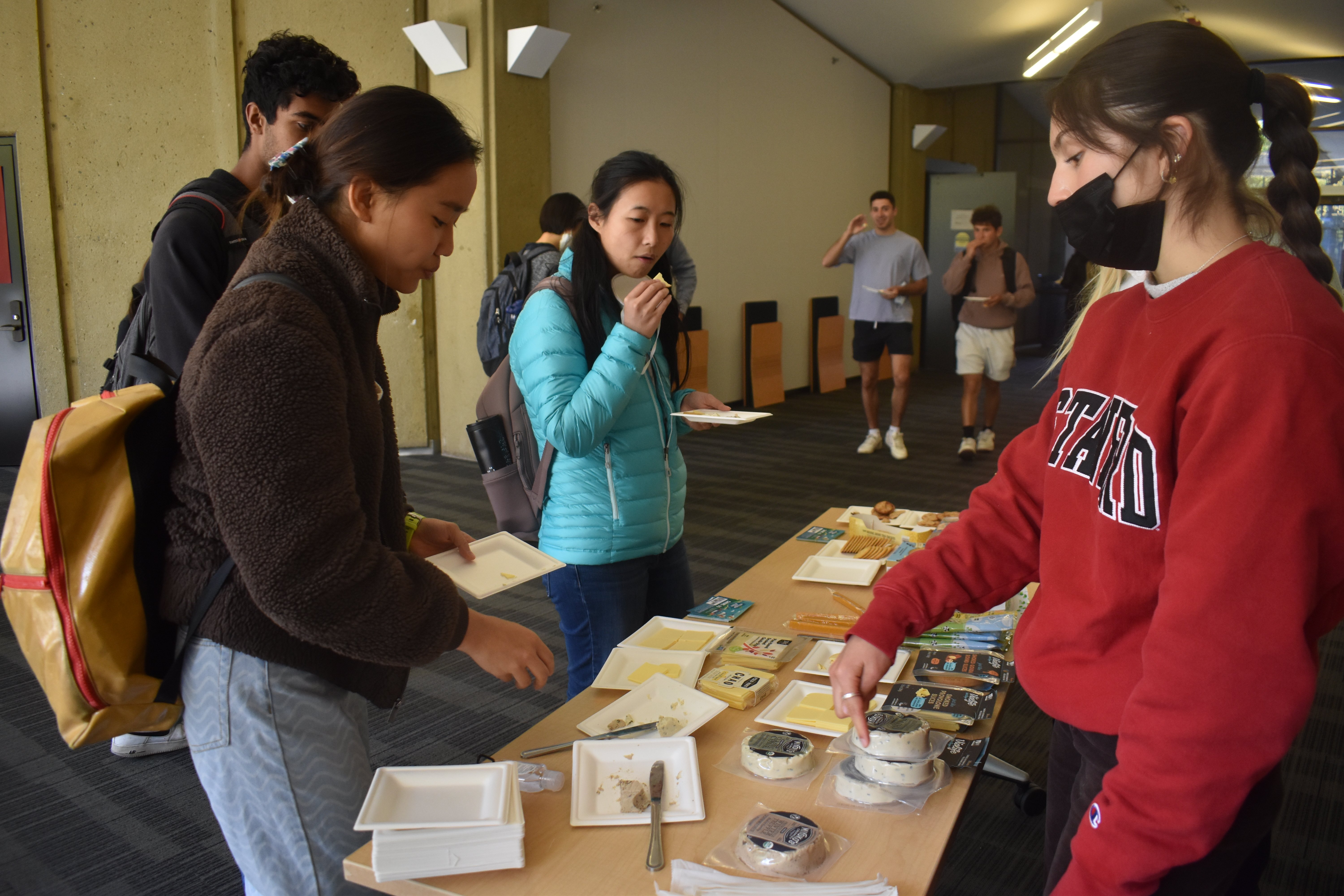Most classes take years to gain popularity as professors struggle to boost enrollment from one quarter to the next. For EARTHSYS 109: “Re-Thinking Meat,” it took just one. In its second year after launching as an online course during spring 2021, Re-Thinking Meat has attracted more than 300 students interested in learning how to examine alternative protein sources and feed a growing population in a rapidly changing environment.
The course grew out of the Stanford Alternative Protein Project and is a recipient of a Plant-Based Diet Initiative (PBDI) grant, which comes from a Stanford School of Medicine program that encourages research on plant-based meat development. The class provides an overview of current scientific research regarding plant-based meats and covers the impact of the meat industry on the global environment and economy. Throughout the quarter, students have the opportunity to sample products such as non-dairy ice cream, pizza and milk in addition to plant-based chicken nuggets, cheese and jerky.
Each week features a new guest speaker representing sectors such as alternative protein industries, venture capital and nutrition.
Ellie Fajer ’23, one of four course teaching assistants (TAs), said that the variety of speaker appearances allows for students to “critically think about these topics and form their own well-based opinions and perspectives.”
As the issues of environmental sustainability and animal welfare gain increasing media attention, the course aims to alleviate “a lack of education and resources” surrounding these complex topics, according to a statement from Fajer and the other three course TAs — Chloe Raygoza ’24, Gianna Dugan ’25 and Hannah Huddleston ’23.
The curriculum also emphasizes the link between meat consumption and the environment. Fajer hopes that the class can expand in future years with the help of Stanford’s new Doerr School of Sustainability, which launches on Sept. 1.
The course currently runs with a one- and two-unit option and allows for students to pursue projects such as alternative protein research papers, plant-based food taste tests and recipe makeovers to enhance the sustainability of traditionally animal-based dishes. Enrollment ranges from first-year undergraduate students to those pursuing graduate and doctoral degrees and covers an equally broad array of prior experience levels with alternative proteins and their scientific basis.
Michael Herrera ’22 enrolled in Re-thinking Meat to learn more about up-and-coming meat alternatives and how they have been integrated into the food industry. The class lectures reveal how alternative meat discussions “are a lot more complicated once you dig into the details” and examine the discrepancies in meat production among various countries, underscoring how important it is to approach the topic beyond “a U.S.-centric view,” according to Herrera.
The course planning team is led by Assistant Professor of Environmental Earth System Science David Lobell, who is also a fellow through the Stanford Program on Food Security and the Environment. Originally, three TAs led the assignment design and speaker outreach processes, but an additional team member came on board after enrollment levels exceeded expectations.
In the coming years, the Re-thinking Meat team and the Stanford Alternative Protein Project hope to continue sparking campus conversations around personal choices that can make immense impacts on the global environment and sustainability.
After gaining awareness on the various components of the alternative protein initiative, students will be able to “think more critically about where our food comes from” in order to “ensure a more sustainable future,” said Hannah Huddleston ’23, who also works as a TA for the course.
Fajer hopes that the course will “inspire students to consider exploring this field further” and “take it with them wherever they go after Stanford.”
This article has been updated to include an attribution to TA’s Gianna Dugan ’25 and Hannah Huddleston ’23.
